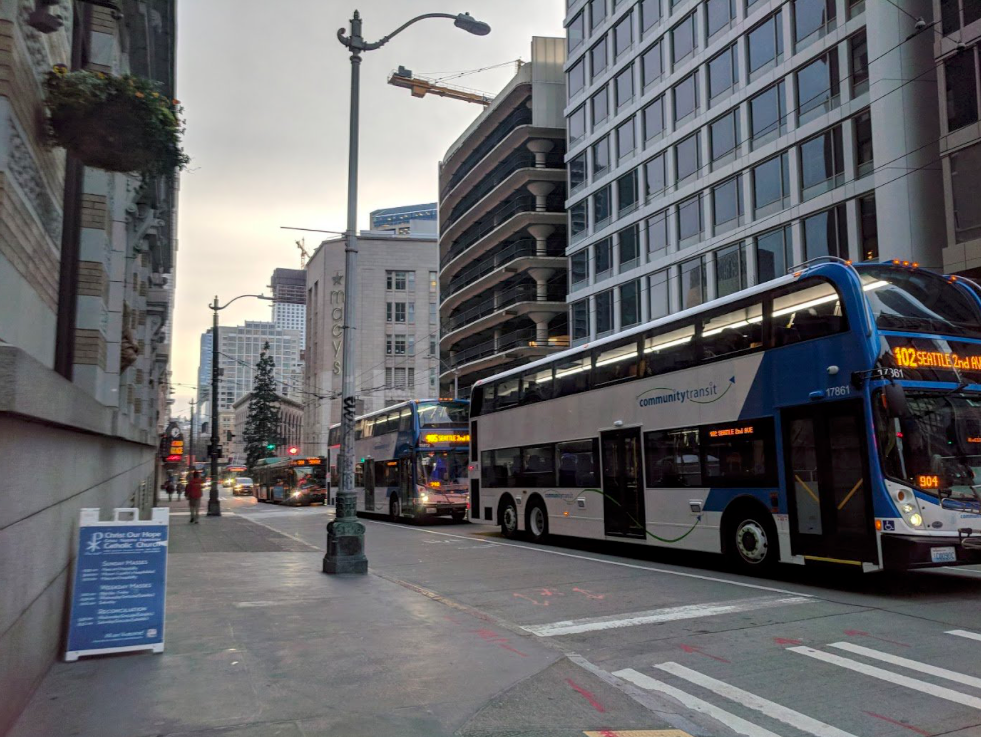Once cities give congestion pricing a shot, they never look back.
By putting a price on driving during peak hours on the most congested streets, cities including Singapore, London, and Stockholm have cut traffic, reduced air pollution, funded critical transit improvements, and made streets safer for walking and biking.
In Stockholm, traffic fell 20 percent after congestion pricing was implemented in 2006. A recent study attributed a 50 percent drop in childhood asthma cases to the policy, the Washington Post reports, and researchers project the public health benefit would be larger in the U.S., given our air pollution baseline.
In London, congestion pricing has accelerated dramatic shifts from car travel to transit and cycling. Since the city's fee went live in 2003, the number of vehicles entering the center city has dropped 44 percent, while the number of people entering increased 23 percent.
But the politics of congestion pricing are tricky -- the new tolls stir opposition, while the benefits aren't immediately apparent until the policy is in effect -- and only a handful of cities have enacted it. So far, none of them are in the United States.
Most recently, New York Governor Andrew Cuomo got cold feet and put no weight behind a congestion pricing proposal for New York City crafted by a panel of his appointees. Cuomo and the state legislature ignored most of the panel's recommendations in their new budget deal.
It's possible that Seattle might beat New York to the punch. Mayor Jenny Durkan is seriously considering a bid to set up a congestion pricing system, reports David Gutman at the Seattle Times. Durkan said she'd like to have it in place by 2021 -- the end of her first term:
Obviously, we’ve got to work with stakeholders, we have to get through a lot of those things, but I think it makes a lot of sense for us to move to congestion pricing to, one, increase mobility and safety downtown and, two, to really restrict some of those greenhouse gases that are released in the urban corridor.
The details of a plan have yet to be worked out, Durkan said, but she wants to implement a real congestion fee on downtown streets -- not just HOT lanes on highways. The revenues, she said, would go toward transit improvements and electric vehicle infrastructure.
Unlike in New York, Seattle could institute congestion pricing without needing to go through the state legislature, Gutman reports. But it would likely require a local referendum.
While Seattle has made significant progress shifting travel from cars to transit, a 2015 poll of voters in the Puget Sound region found that 56 percent opposed congestion pricing, Gutman reports.
That's in line with pre-congestion pricing public opinion in Stockholm, the only city where congestion pricing has passed in a referendum. At first, most people opposed congestion pricing there too. The key was to institute the system on a trial basis before the vote, so people could experience the benefits first. After the trial, the referendum passed with 52 percent of the vote, and approval shot up to 70 percent within a few years. In cities that have held congestion pricing referendums without a trial period, meanwhile, the votes have gone against it.





